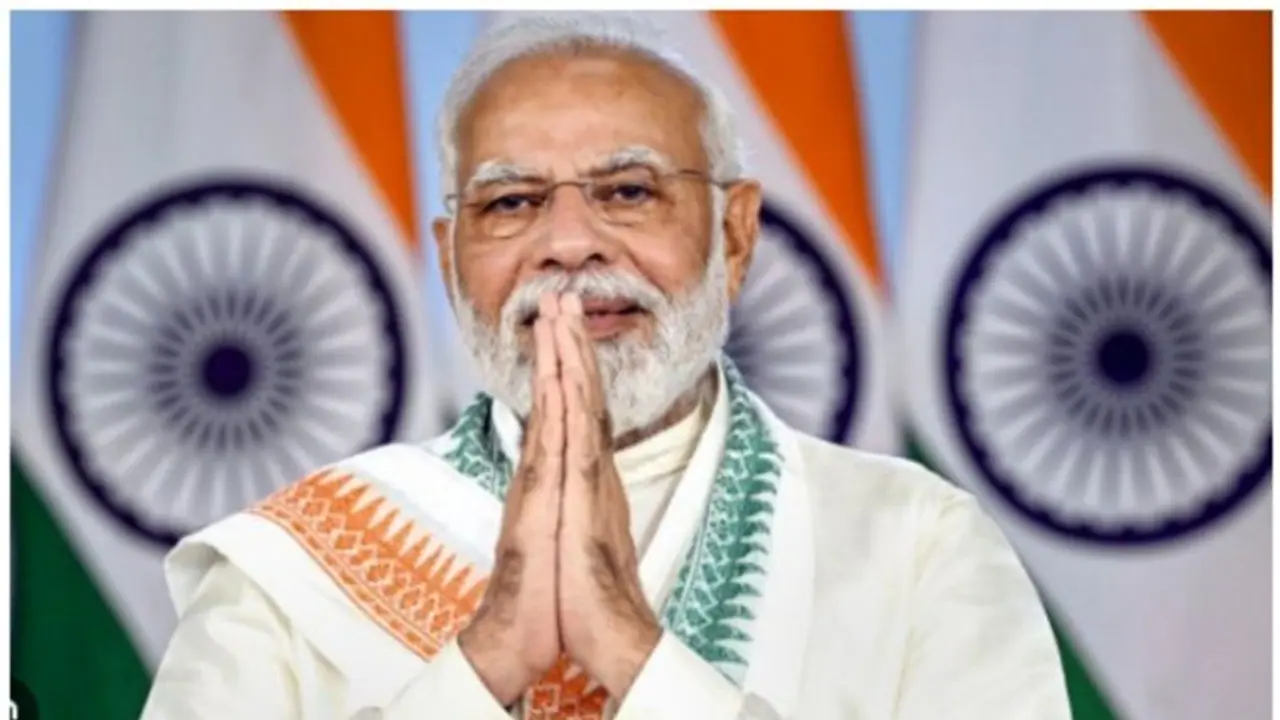PM Modi is in Hiroshima to attend the G7 Summit under the Japanese Presidency at the invitation of Japan's PM Fumio Kishida. PM Modi, who chairs the G-20, stressed his dedication to leading the international community in addressing the problems facing the "Global South," which includes developing and emerging nations.
The G7 summit's invited guest, Indian Prime Minister Narendra Modi, stressed the significance of cooperation between the G7 and G20 in an interview with the Yomiuri Shimbun. PM Modi, who chairs the G-20, stressed his dedication to leading the international community in addressing the problems facing the "Global South," which includes developing and emerging nations.

PM Modi is in Hiroshima, Japan to attend the G7 Summit under the Japanese Presidency at the invitation of Fumio Kishida, Prime Minister of Japan.
PM Modi emphasised the need for cooperation with Japan and other like-minded nations to consistently address the primary problems of developing countries as he observed how geopolitical tensions were disrupting the supply chains for food and energy.
Regarding Russia's invasion of Ukraine, the Prime Minister emphasised the importance of the UN Charter and international law while reiterating his ardent support for a global order based on respect for national sovereignty and territorial integrity.
Despite the fact that India is not a party to the Nuclear Non-Proliferation Treaty and is believed to have its own nuclear weapons, PM Modi has made it clear that using weapons of mass destruction is never acceptable. He stated his willingness to collaborate with all nations in pursuit of Prime Minister Kishida's goal of a world free of nuclear weapons.
Here's the full text of the interview:
Question 1: What is the significance of your participation in the G7 Summit as the chair of the G20 at this juncture of international affairs?
The G7 and G20 summits are crucial platforms for global cooperation. As the G20 chair, I will represent the perspectives and priorities of the Global South at the G7 Summit in Hiroshima. Strengthening collaboration between the G7 and G20 is vital in addressing global challenges like climate change, supply chain disruptions, economic recovery, energy instability, healthcare, food security, and peace and security. The Special Strategic and Global Partnership between India and Japan provides a strong foundation for our joint efforts, contributing to global cooperation on these issues.
Question 2: How do you view Russia's invasion of Ukraine, and how does India respond to negative reactions regarding its abstention from voting on UN resolutions and increased oil imports from Russia?
India advocates for dialogue and diplomacy to resolve disputes and prioritize the well-being of people affected by rising costs of essentials. India abstained from UN General Assembly resolutions to condemn the invasion but remains committed to upholding the UN Charter, international law, sovereignty, and territorial integrity. India supports a peaceful resolution to the Ukraine crisis and is ready to contribute constructively within the UN and beyond.
Question 3: As a prominent leader of the Global South, how do you view the intensifying rivalries among major powers and how will India work with them to attain global peace and stability?
The world faces challenges like the COVID-19 pandemic, disruptions in supply chains, terrorism, and climate change, disproportionately affecting the developing world. India prioritizes addressing these concerns and emphasizes human-centric development through collaboration with Japan and other partners. India aims to serve as a bridge between different voices, promoting a constructive agenda focused on achieving shared objectives for the betterment of humanity.
Question 4: How will India address China's military expansion in the South China Sea and the East China Sea, and the rising tension in the Taiwan Strait to maintain international law and territorial integrity?
India stands for respecting sovereignty, peaceful resolution of disputes, and adherence to international law. India is committed to protecting its sovereignty and integrity while promoting the peaceful resolution of maritime disputes based on international law. India has successfully resolved land and maritime boundaries with Bangladesh, showcasing its approach.
Also read: China to skip G20 meeting in Kashmir, calls it 'disputed territory'; India responds
